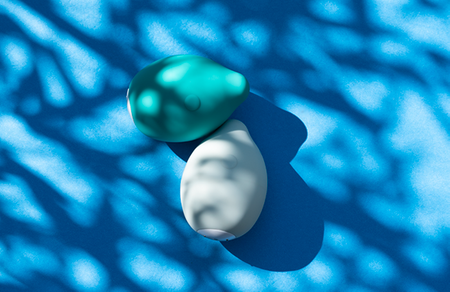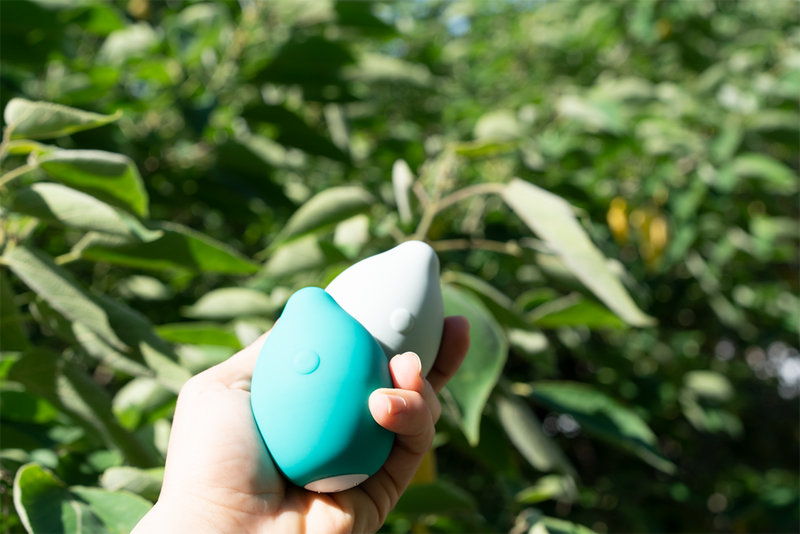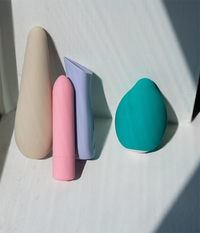The Best Lube for Your Sex Life
We have to admit it–lube is confusing. We've heard options varying from coconut oil, water-based, silicone-based, spit, glycerin-free, paraben-free, and olive oil (seriously).
Most importantly, to us, we've heard horror stories about how certain types of lubes can degrade latex condoms and sex toy materials.
So, we've decided to face our lube confusion head-on and break down for you the best kind of lube for every situation.
Why use lube?
But first–why use lubricant? It can help replace your natural fluid if you're suffering from vaginal dryness during sex, which can occur for a myriad of reasons (not enough foreplay, menopause, or hormones). It can also help when you're using a toy or dealing with a penis that's a bit too big for your slot.
There's nothing wrong with your body if you're reaching for the lube during sex. To us, that says that you care about your enjoyment and you're proactive about your orgasms, you should be proud of yourself. And your partner should agree.
Which type of lube should you use?
So, you're ready to choose a personal lubricant. How do you decide between all the options? What matters most is how you plan to use the lube.
Water-based lube
Water-based lube's main ingredient is –you guessed it–water.
Best for
- Foreplay
- Vaginal sex
- Masturbation
- (Basically, all the classics)
What it does well
- Reduces friction
- Often good for sensitive skin
- Many brands are pretty good at seeming like a natural, vaginal lubricant
- Less clean-up needed–doesn't stain sheets (as easily) like silicone-or oil-based lubricants
- Great first-time lube if you're unsure of what you need
What it does poorly
- Like any other water-based solution, it's absorbed quickly by our skin. So you might have to stop the fun and reapply.
- Not particularly 'thick' which means it might not be the best option for anal sex
- Shower sex
- Anal sex
Our pick for a best water-based lube
-
Lola's personal lubricant
- pH balanced for vaginal health
- Contains aloe vera
- Hypoallergenic
- "Fertility friendly" meaning that there's no spermicide or other harmful chemicals
Silicone-based lube
A silicone-based lube will go the distance for you. Just don't use it with silicone toys. They're super slippery and great at staying on no matter how wet you are (in the shower, underwater, or otherwise).
Best for
- Long sessions
- Anal sex
- Shower sex
- People suffering from chronic vaginal dryness
What it does well
- Stays on–not as easily absorbed as water-based lube
- Slippery–eases more friction than water-based lube
What it does poorly
- Can degrade silicone sex toys
- Might stain sheets or any other textile
Our pick for best silicone-based lube
Maude's Silicone Lube
- Paraben-free
- Odorless
- Non-stick
- Can be used with condoms
Oil-based lube
Oil-based lubes are similar to silicone-based in terms of their staying power and slipperiness. You can, however, use an oil-based lube with silicone sex toys. But do not use an oil-based lube with latex condoms or latex sex toys, or else you might degrade the latex. You can use any all-natural oil as an oil-based lube, just check first that you or your partner don't have any interactions with the essential oils.
We would also caution against jumping in and using a fragrant oil like Ylang Ylang during sex. You might massively disrupt your vaginal pH. Oil-based lubes are great for foreplay and massages, but they can wreak havoc if you have an allergy or sensitive skin.
Best for
- Massage oil
- Foreplay
What it does well
- Stays on–not as easily absorbed as water-based lube
- Slippery–eases more friction than water-based lube
What it does poorly
- Can degrade latex condoms
- Can degrade latex sex toys
- Might stain sheets or other textiles
- Might not be as great for sensitive skin – could more easily cause yeast infections than water-based lubricant
Our pick for best oil-based lube
All-natural Coconut Oil
- Just don't put the jar back in your cupboard after use.
Hybrid lubes
A blend of silicone- and water-based lubes, hybrid lubes are the best of both worlds. They're better at staying on than water-based lubes, but they're not as thick as silicone-based lubes. But they're still not recommended to be used with silicone sex toys!
Best for
- Massage oil
- Foreplay
What it does well
- Stays on–not as easily absorbed as water-based lube
- Slippery–eases more friction than water-based lube
- Not as thick as silicone-based lubricant
What it does poorly
- Can degrade silicone sex toys
- Might stain sheets or other textiles
Our pick for best hybrid lube
System Jo Hybrid
- A great hybrid lube option
- Paraben-free
Why should I care about paraben-free lubricant?
Parabens are preservatives currently used in many skincare and cosmetic products to protect bacterial overgrowth. Some studies have found parabens to be harmful to hormones and fertility.
You're using lube all over your sensitive areas, even if you don't have sensitive skin, you need the ingredients to be high-quality for your sexual health. Using a low-quality lubricant could result in yeast infections, urinary tract infections, bacterial vaginosis–not to mention the potential long-term effects of paraben use.
Does lube expire?
So, now you're eyeing that bottle of lube you once bought but only tried once (and definitely in the wrong type of situation). According to the Federal Drug Administration, lube lasts roughly 1-3 years. You should first check the bottle for their expiration date (and abide by it!) and contact customer service through the brand's website if you're unsure. This is especially true if you're using lube with spermicide or anti-bacterial ingredients.




